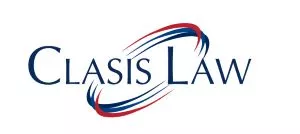- within Corporate/Commercial Law topic(s)
- with readers working within the Law Firm industries
- within Corporate/Commercial Law topic(s)
- with readers working within the Retail & Leisure industries
- within Employment and HR, Consumer Protection, Government and Public Sector topic(s)
In today's business environment, businesses are operated through complex ownership structure that can conceal the identity of their ultimate beneficial owners. This lack of transparency creates opportunities for money laundering, tax evasion and other illicit financial activities. However, it is pertinent to note that group companies are not always formed with malicious intent. In many cases, such structures are created to diversify business operations across different activities. For instance, when a company is incorporated, only three activity codes can be specified in the incorporation form (SPICE+ Part A form). As a result, if an entity intends to engage in additional, unrelated business activities, it may choose to form a separate legal entity, even though the ownership of both entities remains the same.
To enhance transparency and combat financial crimes, the Government of India introduced the concept of Significant Beneficial Ownership ("SBO") through the Companies (Amendment) Act, 2017. This update modified section 90 of the Companies Act, 2013 ("CA, 2013"), which previously dealt with the investigation of beneficial ownership in specific cases. The SBO framework was introduced under the revised section 90 and corresponding rules, following recommendations from the Company Law Committee, which was constituted by the Ministry of Corporate Affairs ("MCA") in 2016. These reforms align with the recommendations made by the Financial Action Task Force ("FATF").
Criteria for SBO
According to the relevant rules of CA, 2013, an individual will be considered an SBO of a company ("hereinafter referred to as Reporting Company") if they, either independently, jointly with others, or through one or more persons or trusts, hold certain rights or interests in the company. These rights or interests may include any of the following:
- An indirect holding, or a combination of direct and indirect holdings, amounting to at least 10% of the shares of the Reporting Company; or
- An indirect holding, or a combination of direct and indirect holdings, representing at least 10% of the voting rights attached to shares of the Reporting Company; or
- The right, either indirectly or in combination with direct holdings, to receive or participate in at least 10% of the total distributable dividend or any other distribution during a financial year in the Reporting Company; or
- The right to exercise, or actual exercise of, significant influence or control over the Reporting Company.
While shareholding, voting rights or dividend distribution can be easily ascertained, determining an individual's control or significant influence over the Reporting Company is more complex.
The word 'indirect holding' refers to a situation where an individual's name is not mentioned in the register of members of a company still such individual may exercise control or derive benefit from the company through other means.
According to the CA, 2013, an individual is considered to hold an interest in a company indirectly if they meet any of the following criteria:
- If the shareholder (member) of the Reporting Company is a body
corporate, either in India or outside India, and the individual
holds:
- 1Majority stake in such body corporate, or
- Majority stake in the ultimate holding company (whether registered or incorporated in India or outside India) of such body corporate.
- If the shareholder (member) of the Reporting Company is a Hindu Undivided Family (HUF) then Karta of the HUF would be the concerned person who has indirect holding.
- If the shareholder (member) of the Reporting Company is a
partnership firm or LLP, and the individual is:
- A partner in the partnership firm or LLP; or
- Holds a majority stake in the body corporate, which is a partner of the partnership firm or LLP; or
- Holds a majority stake in the ultimate holding company of the body corporate that is a partner of the partnership firm or LLP.
- If the shareholder (member) of the Reporting Company is a
Trust, and the individual is:
- The trustee of a discretionary or charitable trust; or
- A beneficiary in a specific trust; or
- The creator (author or settlor) of a revocable trust.
- If the shareholder (member) is a pooled investment vehicle
(such as a mutual fund or venture capital fund) or an entity
managed by such a vehicle, and that vehicle is based in a country
that is a member of FATF and its securities regulator is part of
IOSCO (an international group for financial market regulators). In
such cases, the individual will be considered to hold an indirect
interest if he/she is:
- A general partner; or
- An investment manager; or
- A Chief Executive Officer where the investment manager of such pooled vehicle is a body corporate or partnership entity.
Common intent and informal understandings
While considering the definition of SBO, it is clear that not only does an individual count, but if several individuals act together with a common intent or purpose to control or influence a company, whether through an agreement or even an informal understanding, they are treated as "acting together," and all of them would be considered SBOs.
The terms 'common intent' and 'informal understanding' further expand the concept of SBO. For instance, XYZ Private Limited is a wholly-owned subsidiary of an entity incorporated outside India called XYZ Inc. Since the shareholder of XYZ Private Limited is XYZ Inc., it is necessary to ascertain who the shareholder of XYZ Inc. is.
Suppose two shareholders of XYZ Inc., Mr. X and Ms. Y, are husband and wife, with Mr. X holding 85% of the shares and Ms. Y holding 15%. It is clear that Mr. X is an SBO of XYZ Private Limited because he holds the majority stake in XYZ Inc. However, while Ms. Y does not hold a majority stake in XYZ Private Limited, the relationship between Mr. X and Ms. Y suggests they may have a common intent to control XYZ Private Limited. In this case, Ms. Y would also be considered an SBO for XYZ Private Limited. The law also acknowledges informal understandings between individuals. Even if Mr. X and Ms. Y have no written agreement to exercise control over XYZ Private Limited, their informal understanding to do so would make both of them SBOs.
Reporting requirements for SBO
Under CA, 2013, an SBO is required to inform the Reporting Company by submitting form BEN-1 within 30 days of becoming an SBO for the concerned Reporting Company or if there is any change in their interest in the Reporting Company. The Reporting Company is then required to file Form BEN-2 with the MCA within 30 days of receiving the information in Form BEN-1.
In addition to these requirements, companies need to ensure that their records are updated periodically, as any changes in the ownership structure or control should be reflected in updated filings.
Practical difficulty in filing SBO information
While the introduction of the SBO framework aims to improve transparency in company ownership, a significant practical challenge arises when filing Form BEN-2 with the MCA. Specifically, when an individual claims SBO status through the exercise of control, whether directly, indirectly, or through a combination of holdings, there is a requirement to attach a copy of the agreement that defines how control is being exercised. However, in cases where control is informal (i.e., not backed by a written agreement) or where control may be exercised in the future but has not yet been formally implemented, the requirement to attach an agreement presents a challenge. The absence of a formal, written document complicates the filing process, leaving companies unsure of how to meet this requirement.
Conclusion
These provisions intend to ensure that the significant beneficial owners of companies are identified, enabling authorities to detect and address potential illicit activities. While the SBO framework is a crucial step towards achieving these objectives, it also presents practical challenges. The requirement to file form BEN-2 along with documentation proving how control is exercised can be particularly difficult when control is informal or when the relevant agreement does not exist.
Footnote
1 Majority Stake means: (i) holding more than one-half share capital in the body corporate; or (ii) holding more than one-half of the voting rights in the body corporate; or (iii) having the right to receive or participation in more than one-half of the distributable dividend or any other distribution by the body corporate.
The content of this article is intended to provide a general guide to the subject matter. Specialist advice should be sought about your specific circumstances.



